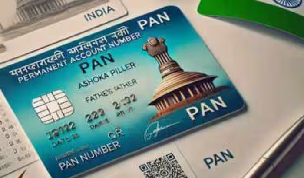India Post Payments Bank (IPPB) customers are reportedly receiving messages claiming that their bank accounts have been blocked with in 24 hours for not updating their PAN card details. Moreover, the messages also contain suspicious links that lead unsuspecting users to scam websites. Notably, the scammers are using phishing techniques to deceive unsuspecting individuals into revealing sensitive information.
What Did PIB Say About The PAN Card Scam?
The Press Information Bureau (PIB) has debunked these messages as fake. India Post has clarified that it does not send such alerts and has advised the public to avoid clicking on suspicious links or sharing personal information. In a post on social media platform X, PIB stated, “The claim that IPPB accounts will be blocked within 24 hours if PAN details are not updated is false. India Post never sends such messages.”
Which Techniques Are Using Scammers?
Phishing is a way scammers try to trick you into sharing personal information like passwords, bank details, or credit card numbers. They usually send fake emails, messages, or links that look like they’re from trusted companies, such as your bank or a shopping website. If you click on those links or give your details, the scammers can steal your information and use it to harm you.
How To Stay Safe From Phishing Scammers
Avoid Sharing PAN Details Unnecessarily: Only share your PAN card details with trusted and verified organizations or platforms when it is absolutely required.
Be Cautious With Links: Avoid clicking on links in emails or messages from unknown sources. Hover over links to check where they lead before clicking.
Look Out For Red Flags: Beware of urgent requests, threats, or offers that seem too good to be true. Scammers often use fear or excitement to trick you.
Use Two-Factor Authentication (2FA): It requires a second verification step, like a code sent to your phone, making it harder for hackers to access your accounts, even if they know your password.



